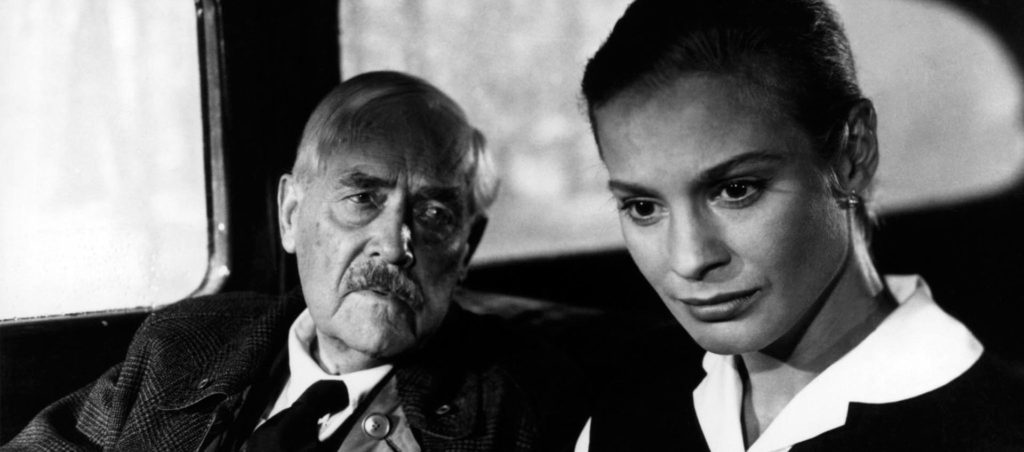
“Recently, I’ve had the weirdest dreams,” says the aged physician Isak to his daughter-in-law Marianne. His confession is an understatement. Isak’s dreams create the crises and categories for a film about legacy and death. Beginning with a Dali-esque vision—Gunnar Fischer’s magnificently shot chiaroscuro sequence for people who think David Lynch is too normal—and through flashback sequences, Isak’s dreams present the picture of a man obsessed with his age: the mistakes of youth and the mortality of his last days.
Wild Strawberries is a road movie. It tells the story of the famous doctor driving to an award ceremony. Marianne travels with him and, along the way, they stumble across other sojourners. These pilgrims are both strangers and reincarnations for Isak, from the radiant Sara (a name shared with Isak’s lost love) to Sara’s suitors (fist fighting over the existence of God) to a quarreling couple (the mid-life picture of love gone cold). In each stop and each stretch of road, Isak’s past reappears in a new form. Marianne, watching the old man face these ghosts, joins the audience in finding empathy, terror, and respect for Isak.
Ingmar Bergman’s film combines Chaucer with Dickens. Yet Bergman’s use of allegory usually elevates rather than flatten characters. As such, the story’s heart remains with Isak and Marianne and how they, for all their inconsistencies and flaws, are real people. In some ways, this film shares lineage with the dysfunctional but warm world of Curtis Hanson’s “Wonder Boys” (2000), the tale of an aging professor and the young pilgrims who give him a new glimpse at life. In any case, Wild Strawberries signals the beginning of Bergman’s unequalled string of powerful, disarming, and provocative films exploring the soul in conflict.
—Joseph J. P. Johnson
- Directed by: Ingmar Bergman
- Produced by: Allan Ekelund
- Written by: Ingmar Bergman
- Music by: Erik Nordgren Göte Lovén
- Cinematography by: Gunnar Fischer
- Editing by: Oscar Rosander
- Release Date: 1957
- Running Time: 91 min.
- Language: Swedish
Arts & Faith Lists:
2004 Top 100 — Unranked List
2005 Top 100 — #41
2006 Top 100 — #32
2010 Top 100 — #35
2011 Top 100 — #29
2015 Top 25 Films on Memory — #4
2019 Top 25 Film on Growing Older — #3